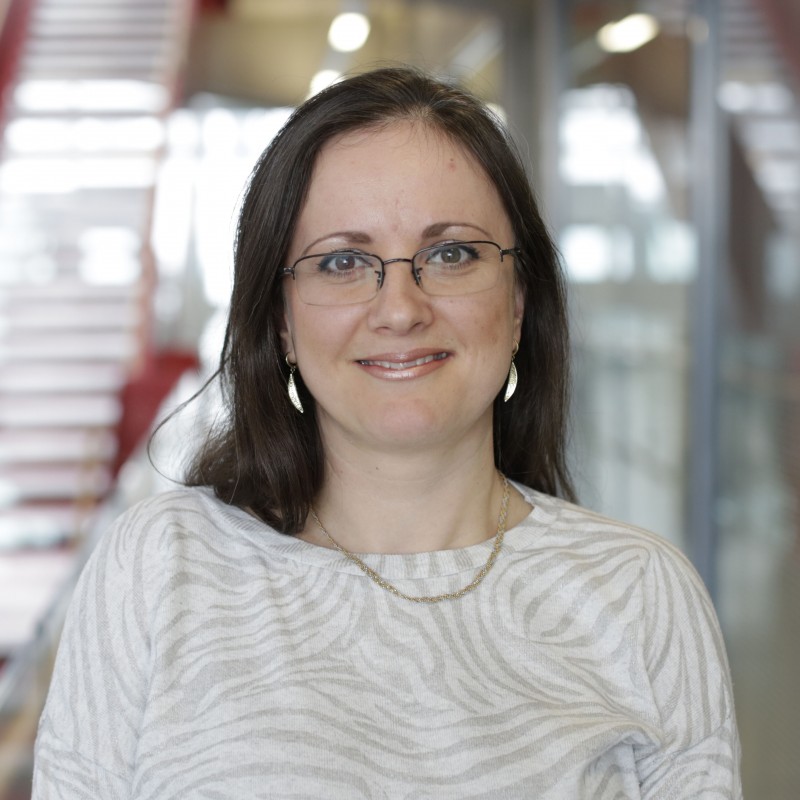By Sophie Arthur
December 16, 2019
Time to read: 4 minutes
This month we are celebrating the ‘Humans of LMS’ and highlighting the incredible and awesome things our colleagues get up to outside of work hours, on top of all that they are achieving at work. Today we want to introduce you to Gabby who is Head of our Computing Facility. On top of this, Gabby also leads on our Technician’s Commitment work and is studying for a PhD.

Gabby is the Head of our Computing Facility here at the LMS as well as several other commitments at work:
“Leading the IT facility involves ensuring that the core infrastructure is fit-for-purpose and fully operational, including making sure all end user computer resources are functional for the continuity of the Institute’s research. Another key part of our role in the facility is to identify and integrate, where relevant, emerging and innovative technologies so that our computing resources effectively underpin and support the cutting-edge science at LMS. I am very proud that the facility is often ahead of many other institutes on that front. I liaise and collaborate with colleagues in other research institutes and organisations to enable delivery of services to LMS and to facilitate scientific collaborations. As well as this, I was the chair of our Athena SWAN Development Working Group and spearheaded the Technician’s Commitment here at LMS which resulted in the LMS becoming a signatory recently. We have secured a budget for this work, organised facility management forums, technicians symposiums and a technician exchange scheme to create opportunities for the professional development of our science support staff.”
Alongside her many commitments here at the LMS, Gabby has taken on the ‘not-so-simple’ task of studying for a PhD.
“My PhD research is in the cybersecurity domain. My research interests are formed around Cyber-Physical systems and associated disruptive technologies, looking at proactive and preventative measures of detecting, preserving and reporting digital evidence in the event of cybercrime. As part of this research during 2019, I have delivered a MSc module on incident response and digital forensics, have published peer reviewed and technical articles, presented my research at the 12th International Conference for Global Security, Safety and Sustainability, was a speaker at the Forensics Europe International conference, wrote 2 book chapters and published a dataset .”
Gabby, previously, studied for her MSc alongside her full-time job and other commitments, so there were many motivations but also lessons learnt from that experience that she could apply now to her PhD study.
“ Studying alongside a full time job and a young family is incredibly challenging, I learnt very early on that self-discipline and effective time management are incredibly important, but also that it doesn’t matter if you don’t know something as approaching any problem step by step will help you achieve your target. I graduated with Distinction and was offered a full scholarship onto a PhD programme, which created the perfect opportunity for me to continue research and professional development.”
Understandably, balancing all these commitments must be a challenge, so we asked Gabby how she managed it and what the benefits are for her.
“Stating the obvious, balancing work, family and research is incredibly challenging. With all my commitments, I need to be aware of how I am managing my time, work, research, family and my own well-being. Prioritising and having a very strong support network really helps me with that. It is important to me that my family feels that they are a part of it because they can be more supportive of what I am trying to achieve. As for the benefits, apart from my own personal and career development it is a great opportunity to show my daughter that learning is a life-long journey, and not something that stops when you finish school. Lastly, women in the cybersecurity field remain underrepresented and it is good to contribute to balancing that ratio.”
Finally, we asked Gabby what her advice would be for others who might be thinking about doing further study to help their careers alongside their full-time jobs.
“Go for it if you have the opportunity. It is hard, but enormously rewarding. Make sure to create that really strong support network before you embark on this challenging journey.”